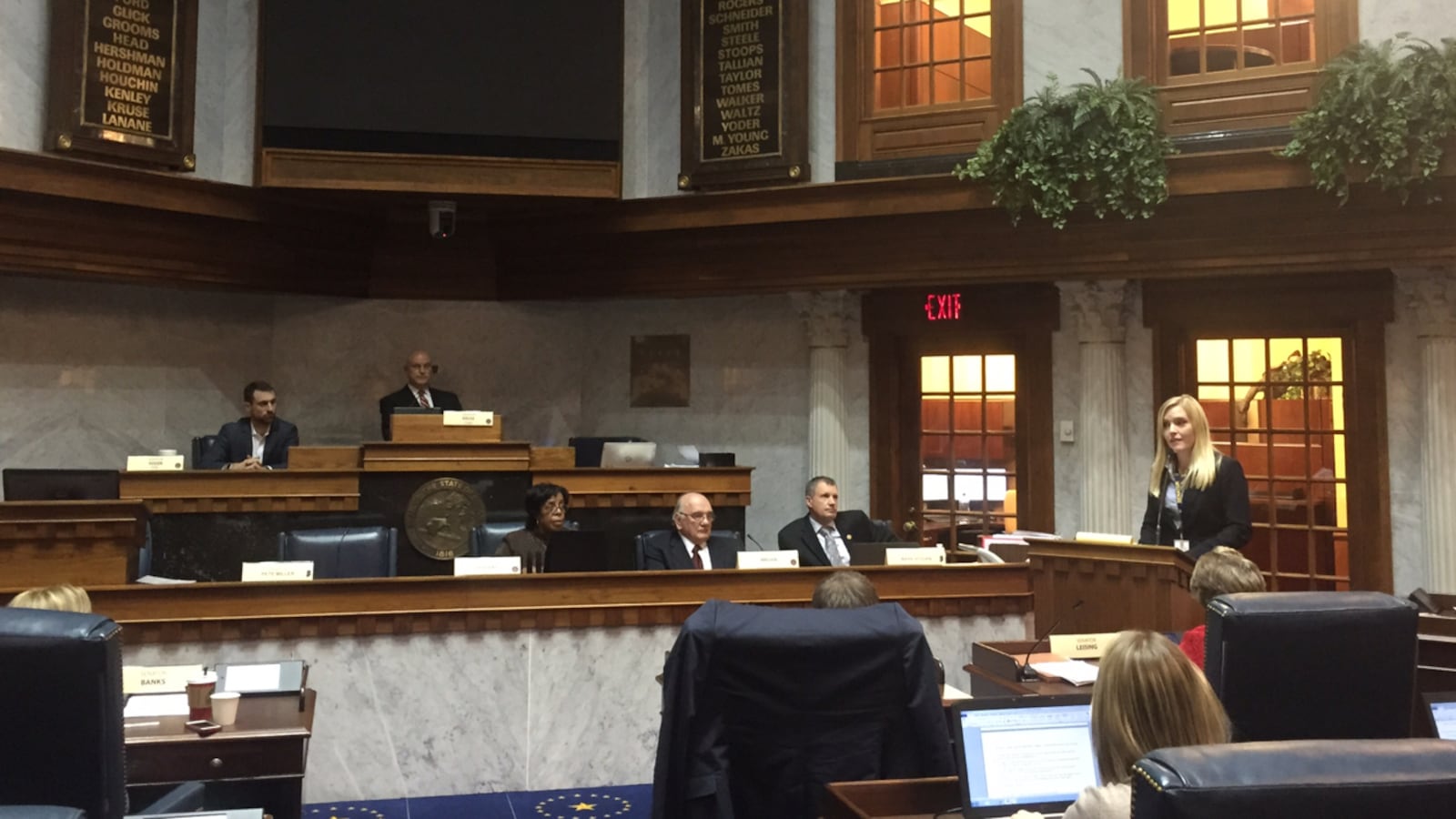Indiana is another step closer to dramatically overhauling its state standardized test, but debate over the bill that would enact the changes isn’t likely to end any time soon.
The Indiana Senate today voted 38-10 to approve House Bill 1395, which would get rid of the ISTEP testing program by July 2017 and replace it with something that would be developed by a committee of policymakers, educators and experts over the next year. But a dispute over how to address the problems that plagued the 2015 ISTEP means the legislation will have to take a detour to a conference committee before it could go up for a final vote and possibly make its way to Gov. Mike Pence.
(Read “Junking Indiana’s ISTEP test: What might come next and at what cost?“)
When Rep. Bob Behning, R-Indianapolis, first introduced House Bill 1395 in January, he included language that would authorize a full rescore of the controversial 2015 exam. He later pared down the bill to allow for merely a rescore of a smaller sample of tests. Last year’s exam was beset with scoring delays and technical glitches that Behning thought called for a full review of the scores.
But when the bill reached the Senate last week, language authorizing the ISTEP rescore was stripped out by a Senate panel that raised concerns about cost. A rescore — conducted by an outside testing company — could cost the state an estimated $8 million to $10 million. That price tag would be a tough sell in a non-budget year, Senate Education Committee Chairman Dennis Kruse, R-Auburn, said last week.
Since introducing his bill, Behning has been somewhat encouraged by assurances from the the Indiana Department of Education that the 2015 exam was accurate, he said, but he remains concerned enough about how scores will be used going forward as part of school accountability grades that he’s not willing to the let issue drop.
“I still talk to superintendents who have suggested that having a rescore at least of a sample (of exams) would not be a bad idea to just affirm to the education community that there are no validity issues,” Behning told Chalkbeat last week. “Personally, if I had my way, I would like to have the rescore language in.”
Since the version of the bill that passed the House earlier this month included the rescore measure, the bill now goes to a conference committee where the two chambers will try to work out their differences. Conference committees are expected to meet during the next two weeks before session is set to end March 10.
Today’s vote on the bill was split along party lines. Yesterday, Democrats proposed an amendment that would have allowed the new testing committee to elect its own leader, rather than have the leader appointed by Pence, but the measure was shot down. Sen. Earline Rogers, D-Gary, cited this as her reason for opposing the bill.
“We like the idea for the panel and the changes in ISTEP, but I do think there could’ve been a more fair way of who was going to chair (the panel),” Rogers said.
The panel, which would include House and Senate education committee chairmen, State Superintendent Glenda Ritz, and leaders from the Department of Workforce Development and the Commission on Higher Education, as well as their appointees, would be tasked with delivering a report on testing options to the legislature by Dec. 1, 2016,
Deadlines for appointing panel members is May 1 of this year, so the group could get started shortly after the legislature adjourns next month.
The goal is for the panel’s recommendations to become legislation on the General Assembly docket in 2017.


